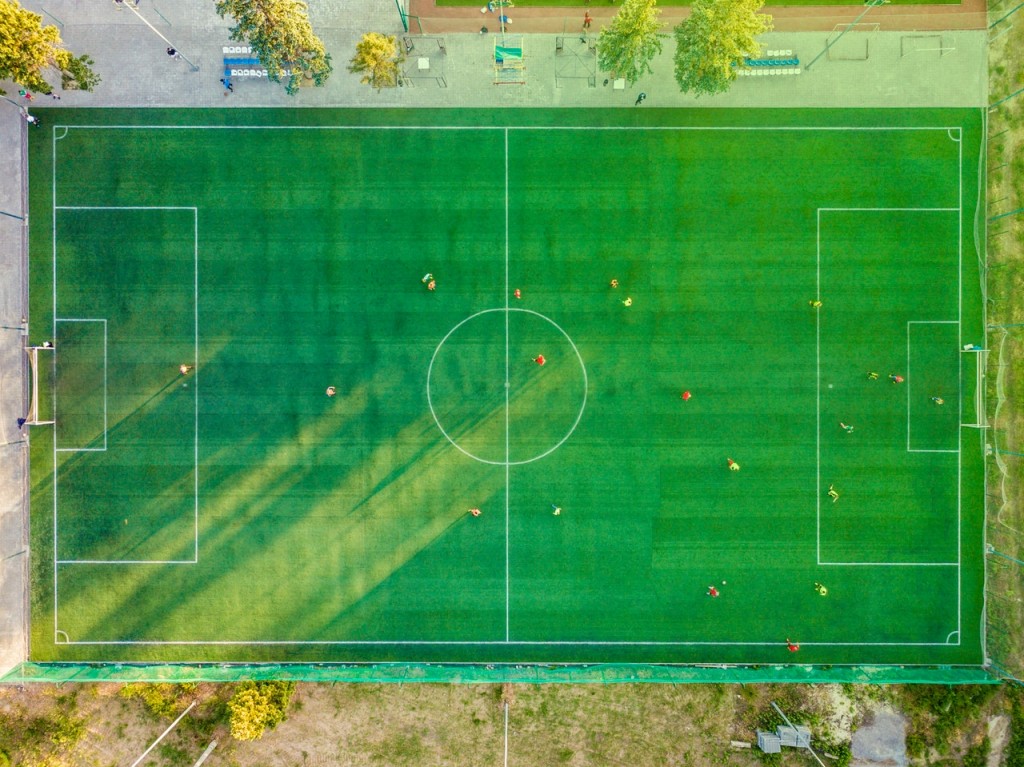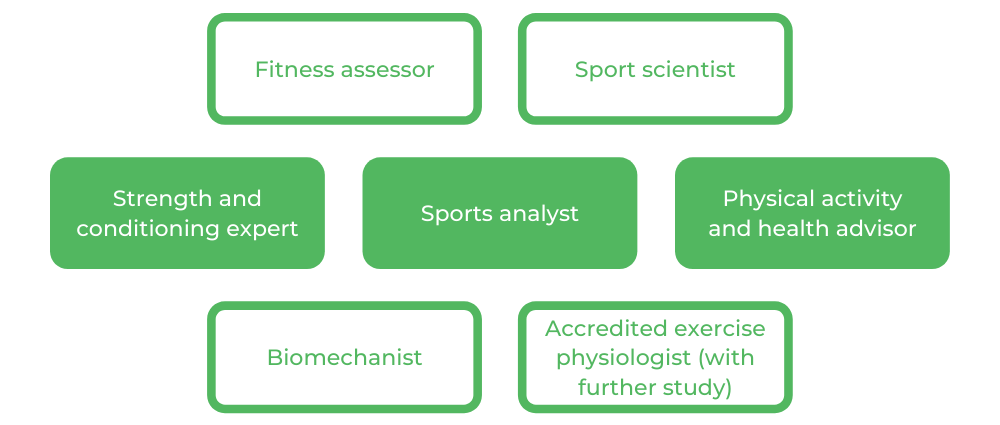So now that you know what to expect in Sport and Exercise Science at WSU, are you thinking of applying for it? Maybe, you still want more information?
With the help of Keishabilla, a Bachelor of Health Science (Sport and Exercise Science) student at WSU, this article shines a light on the good and not-so-good aspects of the course.
Let’s dive in!
Why should you study a Sport and Exercise Science degree at WSU?
Top 3 Pros of a Sport and Exercise Science Degree
Top 3 Cons of a Sport and Exercise Science Degree
Things to Know Before Starting WSU Sport and Exercise Science
What Makes this Degree Different
Motivations for Studying WSU Sport and Exercise Science
Potential Career Paths
Why should you study a Sport and Exercise Science degree at WSU?
“I chose to study this degree at WSU because I liked PDHPE and biology in high school,” Keishabilla tells us. “I want to work in a sport or rehabilitation area, so this was the perfect degree for me.”
If you know that you’d enjoy working in the Sports industry, Sport and Exercise Science at WSU provides a thorough knowledge foundation and skillset that is compatible with becoming a Sports and Exercise practitioner.
If you look in the right places, such as the WSU CareerHub website or asking tutors, there are many career opportunities that can get you kickstarted in your career path while studying this degree. Through having a basic knowledge of Health Science through her study, Keishabilla, in fact, ended up landing an intern opportunity early on in her degree!
“This degree provides me with internship opportunities to have work experience in a famous sporting club such as Sydney FC,” she explains. “This will help me become more familiar working in a sporting area.”
Top 3 Pros of a Sport and Exercise Science degree
#1: Interesting and fun coursework
“Studying exercise science units, I got to do a lot of different physical tests,” Keishabilla says.
Since the degree focuses on the discipline of Sports and Exercise Science, there is undoubtedly a focus on practical movement. So, while classes in other degrees make students more sedentary, many units in this course will engage students to also get up and running.
For example, in Exercise Testing and Measurement, students learn about various health-related exercise methodologies.
“This includes a beep test, vertical jump test and sit and reach test,” Keishabilla says. “These tests also allow me to reflect on my physical abilities and allows me to improve it in the future.”
WSU also has a broad range of facilities on campus that cater to these Sport and Exercise Science units, such as the Biochemistry Laboratory, UniClinic training facility, dance facilities and multi-purpose courts, and the Exercise and Sport Science Laboratory complex.
#2: But, it’s not all about the physical
“By studying this degree, I also got to learn the psychological side of sport and exercise,” Keishabilla tells us.
Sport and Exercise Science encompasses a variety of scientific knowledge — not just physical sports. Learning from industry professionals, students also gain insight on the mental side of Sport and Exercise Science; this is an equally important aspect of the discipline and ensures that graduates have a comprehensive understanding of their practice for all types of clients.
“For example,” Keishabilla explains, “coaches might use positive reinforcement by using lollies to encourage their junior athletes to train and eventually improve their performance.”
#3: Awareness of body health
“By studying anatomy and physiology units in this degree, I have also become more aware of body changes and how to improve my own health,” Keishabilla says. “For example, I started developing a stretching routine to improve my bad posture!”
Just as Sports and Exercise Science students learn to develop health-related exercise programs for their future clients, their knowledge can be applied to their own lives!
Top 3 Cons of a Sport and Exercise Science degree
#1: Focus on memorisation
If memorisation comes difficult to you, the fact that a large bulk of assessments in a Bachelor of Health Science (Sport and Exercise Science) requires memorising the Latin etymologies of different body parts should be considered.
“This degree requires a lot of memorisation,” Keishabilla says. “Anatomical words are usually based on Latin and Greek words that make it hard to memorise them.”
As an example, she tells us the “acetabulum” is the socket of hip bone; the way to recall this is typically by knowing that its Latin translation is ‘vinegar cup’.
#2: Cadaver tests
“There are some tests that are conducted on a cadaver,” Keishabilla says, “[and] It was really hard to identify anatomical structure on the cadaver because I had never seen it before.”
Anatomy units can come as a shock for students as they will encounter working with dead bodies. However, studying cadavers is a vital component of these practicals. This can present some conflict when trying to excel in your studies!
#3: Little guidance on finding your study method
Because a Bachelor of Health Science (Sport and Exercise Science) is quite different to the class structure and expectations in high-school, Keishabilla tells us that “it takes a while to find the right study method for this degree.”
Students have to organise their learning approach in lectures, tutorials and practicals; while lectures are the most similar to high-school learning, working in laboratory or computer rooms during practicals may be unfamiliar.
Besides the general support from student advisors, there is little guidance on how to study and excel in your degree.
“In my first year, I struggled to find a way to organise notes and understand concepts. This is because the degree explores a variety of topics, not only focusing on sport,” Keishabilla says.
Any regrets? What do you wish you had known before starting Sport and Exercise Science at WSU?
While Keishabilla doesn’t have any regrets about studying a Bachelor of Health Science (Sport and Exercise Science) at WSU, there are a few facts that she wishes she knew about what the course actually encompasses.
Firstly, this degree is not only about sports — she explains that “this degree explores a variety of subjects such as psychology, biomechanics, culture, ethics, and philosophy. At first, I was demotivated to study because some of these topics were boring and difficult for me.”
The coursework also requires a lot of studying for final exams and some of this studying may feel extraneous to the bigger picture of your degree.
“In my first year, there were three anatomy units, and I was struggling to understand and remember the body parts,” Keishabilla first explains. “It was really hard because anatomical terms are based on Latin and Greek words. I had to draw a lot of diagrams and make up mnemonics to memorise all the fancy terms. It was time consuming.”
What makes this degree different from the ones offered at other universities?
At WSU, the lecturers and tutors are dedicated to ensuring that students comprehend the work and go out of their way to help students.
What inspired you to choose this degree?
Keishabilla says that she chose degree “because it involves subjects that I like which are PDHPE and Biology. I like doing physical work and getting to know other people who have similar interests, which led me to this degree.”
As for choosing WSU, it was all about location and the convenience of the campus.
“WSU Campbelltown is also close to my house which makes it easier to get to the university instead of catching a train for hours. The university is also close to Macarthur Square so I can buy food and go to classes quickly,” she explains.
What are the possible career paths?
After completing a Bachelor of Health Science (Sport and Exercise Science), graduates can begin a career as Sports and Exercise practitioners, and this can manifest in different career options such as:
-
- Fitness Assessor
- Sport Scientist
- Strength and Conditioning Expert
- Sports Analyst
- Physical Activity and Health Adviser
- Biomechanist
- Accredited Exercise Physiologist (requires postgraduate study)
Lynn Chen is a Content Writer at Art of Smart Education and is a Communication student at UTS with a major in Creative Writing. Lynn’s articles have been published in Vertigo, The Comma, and Shut Up and Go. In her spare time, she also writes poetry.





